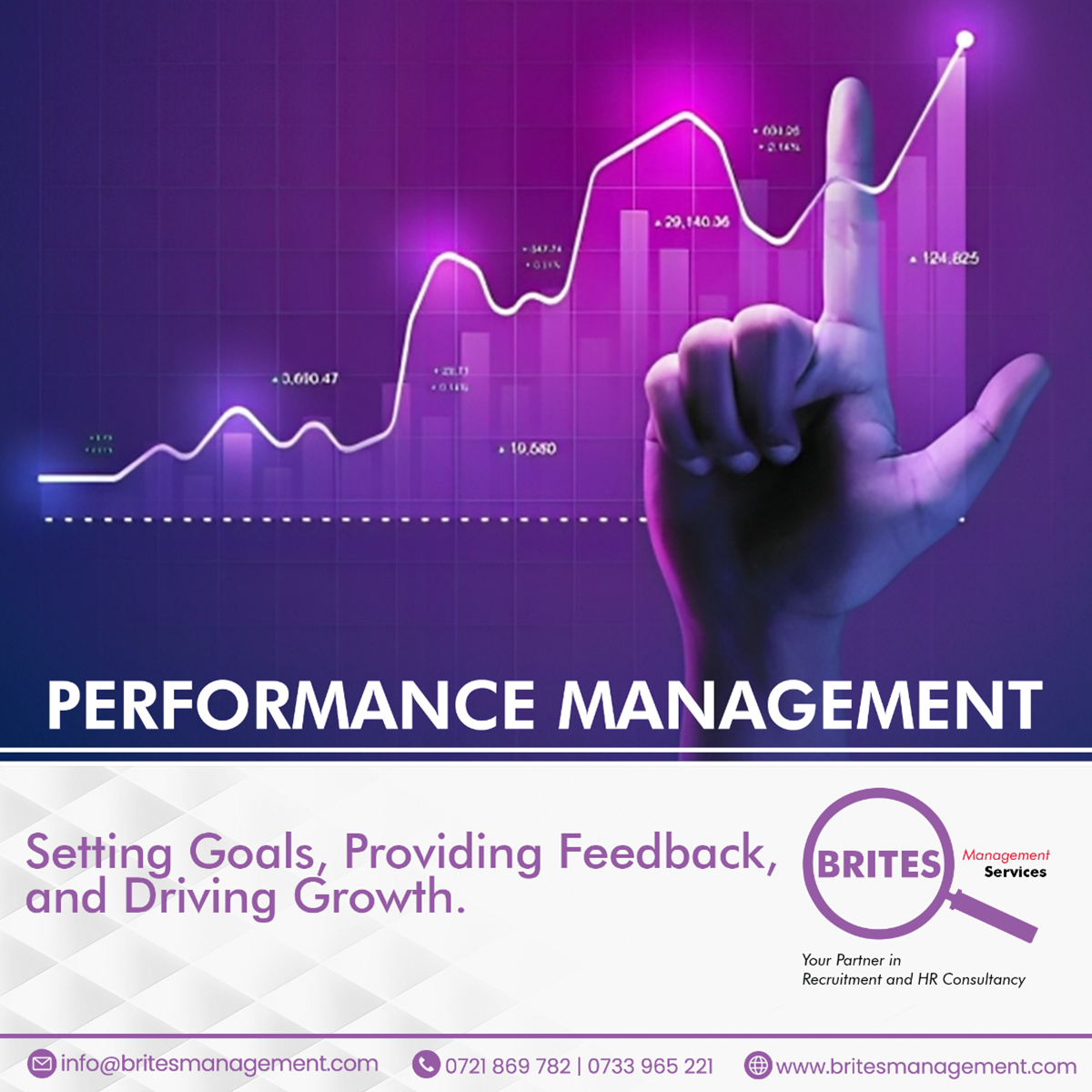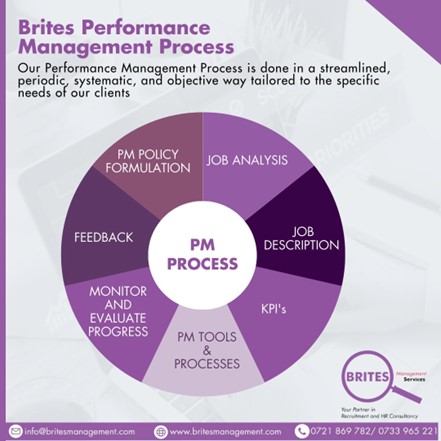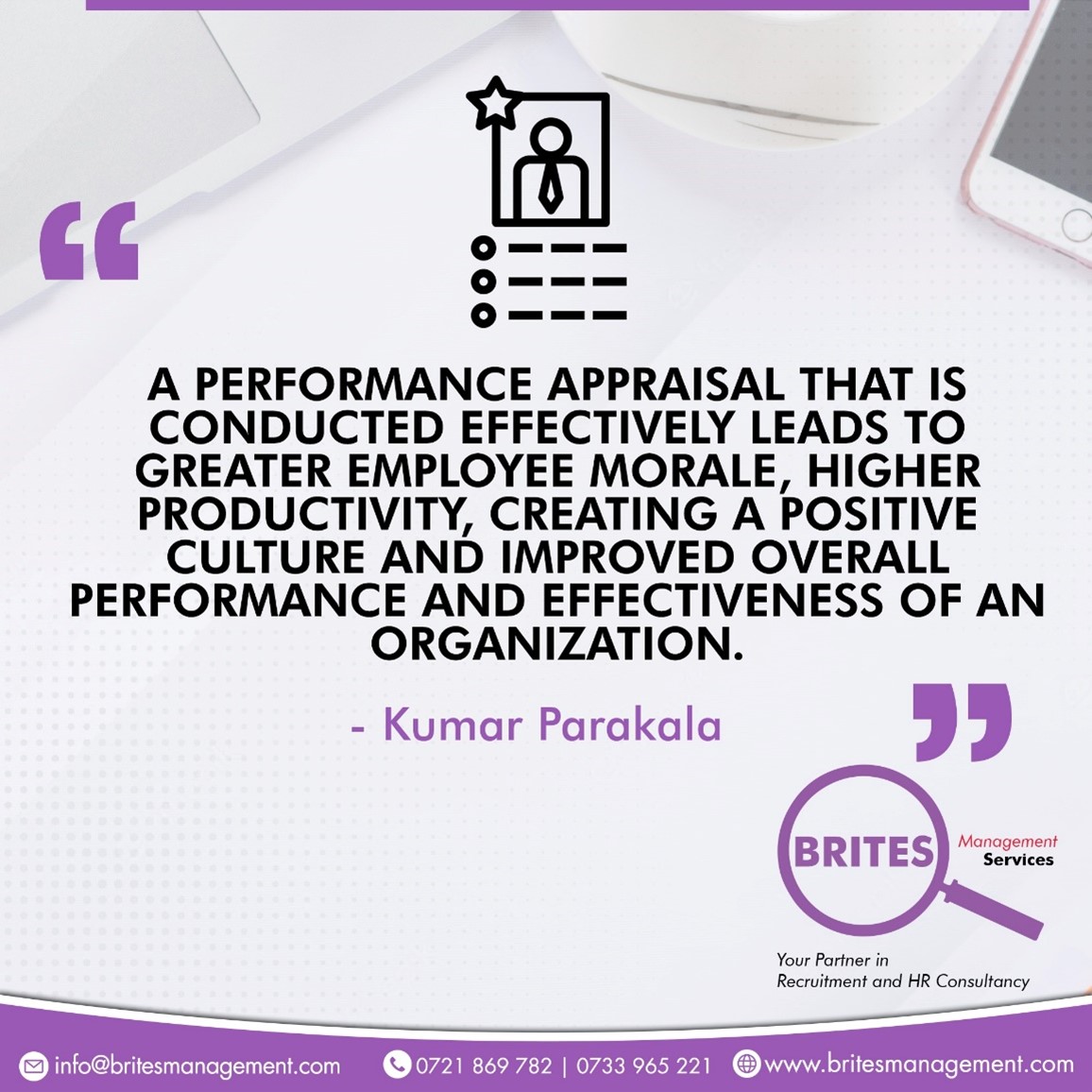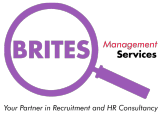
PERFORMANCE MANAGEMENT
- Posted By Brites Management Services
- Career Development
BENEFITS OF CONDUCTING PERFORMANCE MANAGEMENT
If a high-performing, productive workforce is what you’re going for, then a performance management system is a must!
While performance management is a game-changer in many ways, we’ve picked 10 key benefits that explain why:
1 Improved Employee Performance & Engagement: Performance management helps employees understand their roles, responsibilities, and performance expectations, leading to increased productivity and efficiency. They also tend to be more engaged in their work. Engaged employees are more likely to stay with the organization and contribute positively to its success.
2 Alignment with Organizational Goals: By setting clear performance expectations and goals, performance management ensures that individual and team efforts are aligned with the organization's overall objectives. This alignment helps drive the company toward its strategic goals.
3 Personal Growth and Development: Performance management includes discussions about employees' career aspirations and development plans. This encourages skill development and personal growth, benefiting both employees and the organization.
4 Increased Accountability: Clear performance expectations and goal-setting create a sense of accountability among employees. They understand what is expected of them and take ownership of their work.
5 Identification of Strengths and Weaknesses: Through performance appraisals and feedback, both employees and managers can identify an individual's strengths and areas for improvement. This information can be used to tailor development plans and training.
6 Enhanced Communication: Performance management promotes open and transparent communication between employees and managers. It provides a platform for discussing challenges, providing constructive feedback, and addressing concerns.
7 Better Decision-Making: The data and documentation collected during performance management can inform HR and management decisions. It can help identify high-potential employees, areas where additional resources are needed, and areas of concern.
8 Succession Planning: Performance management helps identify high-potential employees who can be groomed for leadership positions, contributing to effective succession planning.
9 Overall Organizational Performance: When all employees are working toward their best potential, it has a positive impact on overall organizational performance, including increased profitability, customer satisfaction, and market competitiveness.
10 Adaptation to Change: Performance management can help organizations adapt to changing circumstances by identifying areas that need adjustment or additional resources.
PERFORMANCE MANAGEMENT PROCESS

· Establish Clear Expectations: The process starts by setting clear performance expectations for each employee. These expectations are aligned with the organization's goals and objectives.
| · Regular Check-Ins: Scheduling periodic check-in meetings between formal appraisals to monitor progress and adjust development plans as needed.
|
· Goal Setting: The next step is collaborating with employees to set SMART goals (Specific, Measurable, Achievable, Relevant, Time-bound) that align with their roles and the organization's objectives.
| · Recognition and Rewards: Continuously recognizing and rewarding outstanding performance to motivate employees and reinforce positive behaviors.
|
· Regular Feedback: The other step is providing ongoing feedback and coaching to employees. This can be informal, day-to-day feedback or structured ones. | · Address Performance Issues: Addressing the performance issues promptly and constructively. Offering additional support, coaching, or training to help the employee improve.
|
· Performance Appraisal Meetings: Prepare for the meetings by gathering data and documentation on the employee's performance, including achievements and areas for improvement.
| · Feedback Loop: Encouraging a two-way communication. Allowing employees to share their thoughts, concerns, and feedback about the performance management process itself.
|
· Development Plans: Based on the appraisal meeting, we will create an individual development plan (IDP) that outlines specific actions and resources needed to improve performance and achieve goals and collaboratively set milestones and timelines.
| · Continuous Improvement: Regularly evaluating and refining the performance management process to ensure it remains effective and aligned with organizational objectives.
|
· Training and Support: Providing the necessary training, resources, and support to help employees achieve their development goals.
| · Legal and Ethical Considerations: Ensure that all performance management practices adhere to legal and ethical standards, including anti-discrimination laws and privacy regulations.
|
· Documentation: Maintain accurate and organized records of performance appraisals, feedback, goals, and development plans. This documentation is essential for tracking progress and making informed decisions about promotions, raises, or corrective actions.
| · Follow-Up: Tracking progress over time and following up on the development plan to ensure that performance is improving and goals are being met.
|
By following this step-by-step process, we are able to create a systematic approach to performance management that will help the employees grow, contributes to organizational success, and maintain a positive working environment.
In summary, conducting performance management is a strategic and holistic approach that not only improves individual and team performance but also contributes to the overall success and sustainability of the organization.
CONCLUSION
In conclusion, performance management system represents a vital opportunity for the organization to elevate its performance, enhance employee engagement, and align the workforce with the strategic goals. It has outlined a comprehensive framework designed to address the unique needs and challenges.
Performance management is about getting employees engaged & imbibing in them a sense of ownership & pride.

If a high-performing, productive workforce is what you’re going for, then a performance management system is a must!
Brites Management Services Ltd. is one of the leading Consultancy companies in Kenya offering the best performance Management services to companies. We have a team of qualified staff with excellent management skills in Performance Management.
Our experience in Performance Management and the professionalism with which we serve our clients will assist your company meet your goals and objectives. Our team will undertake to conduct an end to end performance management activity or a stand-alone performance appraisal, setting KPI’s and performance objectives.
Talk to us today.







